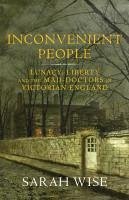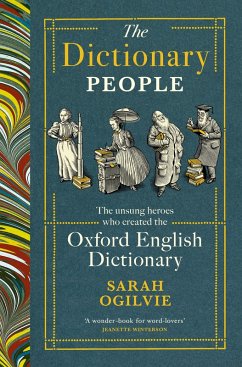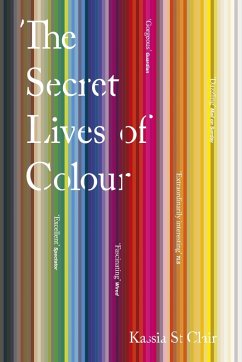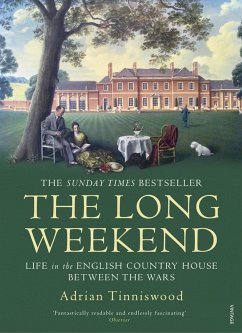
Inconvenient People (eBook, ePUB)
Lunacy, Liberty and the Mad-Doctors in Victorian England
Versandkostenfrei!
Sofort per Download lieferbar
11,99 €
inkl. MwSt.
Weitere Ausgaben:

PAYBACK Punkte
0 °P sammeln!
This highly original book brilliantly exposes the phenomenon of false allegations of lunacy and the dark motives behind them in the Victorian period.Gaslight tales of rooftop escapes, men and women snatched in broad daylight, patients shut in coffins, a fanatical cult known as the Abode of Love... The nineteenth century saw repeated panics about sane individuals being locked away in lunatic asylums. With the rise of the 'mad-doctor' profession, English liberty seemed to be threatened by a new generation of medical men willing to incarcerate difficult family members in return for the high fees ...
This highly original book brilliantly exposes the phenomenon of false allegations of lunacy and the dark motives behind them in the Victorian period.
Gaslight tales of rooftop escapes, men and women snatched in broad daylight, patients shut in coffins, a fanatical cult known as the Abode of Love...
The nineteenth century saw repeated panics about sane individuals being locked away in lunatic asylums. With the rise of the 'mad-doctor' profession, English liberty seemed to be threatened by a new generation of medical men willing to incarcerate difficult family members in return for the high fees paid by an unscrupulous spouse or friend.
Sarah Wise uncovers twelve shocking stories, untold for over a century and reveals the darker side of the Victorian upper and middle classes - their sexuality, fears of inherited madness, financial greed and fraudulence - and chillingly evoke the black motives at the heart of the phenomenon of the 'inconvenient person.'
'A fine social history of the people who contested their confinement to madhouses in the 19th century, Wise offers striking arguments, suggesting that the public and juries were more intent on liberty than doctors and families' Sunday Telegraph
Gaslight tales of rooftop escapes, men and women snatched in broad daylight, patients shut in coffins, a fanatical cult known as the Abode of Love...
The nineteenth century saw repeated panics about sane individuals being locked away in lunatic asylums. With the rise of the 'mad-doctor' profession, English liberty seemed to be threatened by a new generation of medical men willing to incarcerate difficult family members in return for the high fees paid by an unscrupulous spouse or friend.
Sarah Wise uncovers twelve shocking stories, untold for over a century and reveals the darker side of the Victorian upper and middle classes - their sexuality, fears of inherited madness, financial greed and fraudulence - and chillingly evoke the black motives at the heart of the phenomenon of the 'inconvenient person.'
'A fine social history of the people who contested their confinement to madhouses in the 19th century, Wise offers striking arguments, suggesting that the public and juries were more intent on liberty than doctors and families' Sunday Telegraph
Dieser Download kann aus rechtlichen Gründen nur mit Rechnungsadresse in A, B, BG, CY, CZ, D, DK, EW, E, FIN, F, GR, HR, H, IRL, I, LT, L, LR, M, NL, PL, P, R, S, SLO, SK ausgeliefert werden.













